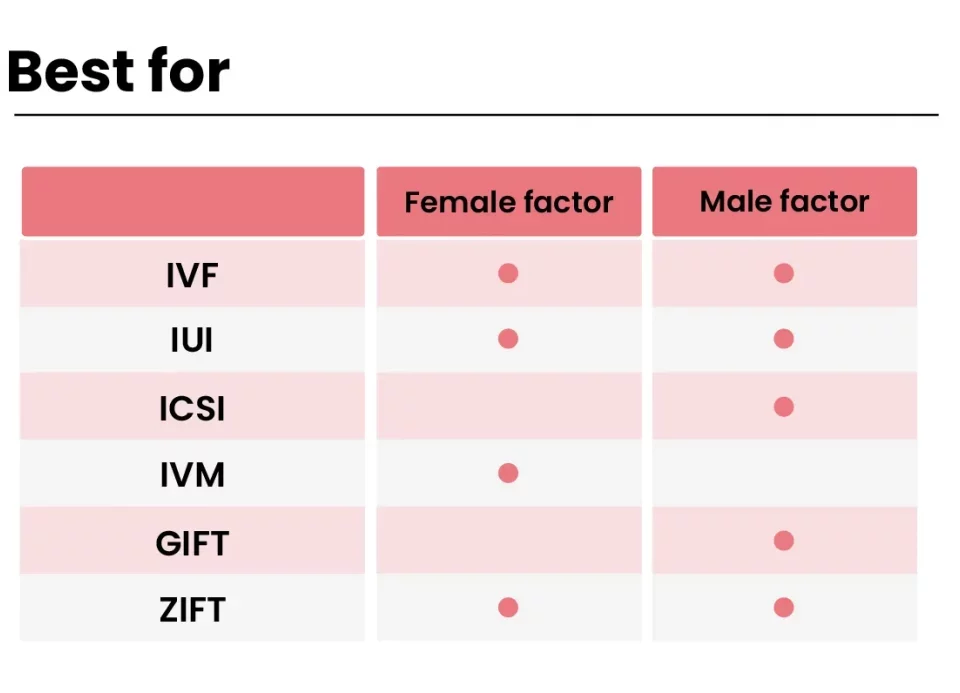
How Much Does IVF Cost in Mexico? Your Ultimate Guide to Affordable Fertility Treatment
April 14, 2025
How Many Babies Are Born Through IVF Each Year?
April 14, 2025How to Prepare for IVF: Your Step-by-Step Guide to Feeling Ready

How to Prepare for IVF: Your Step-by-Step Guide to Feeling Ready
Starting in vitro fertilization (IVF) can feel like stepping into uncharted territory. It’s exciting, nerve-wracking, and full of questions all at once. Whether you’re just beginning to explore fertility treatments or you’ve already scheduled your first appointment, preparation is key to making this journey smoother. This guide dives deep into everything you need to know to get ready—physically, emotionally, and practically. Think of it as your roadmap to feeling confident and in control as you take this big step toward building your family.
Why Preparation Matters More Than You Think
IVF isn’t just a medical procedure; it’s a whole experience that touches every part of your life. From hormone injections to waiting for results, it’s a rollercoaster. Getting ready ahead of time can ease the stress and even boost your chances of success. Studies show that lifestyle changes—like eating well or managing anxiety—can positively impact IVF outcomes. A 2023 report from the American Society for Reproductive Medicine found that women who prepared their bodies and minds for IVF reported lower stress levels and felt more empowered during treatment. So, let’s break it down and get you prepped!
Getting Your Body Ready for IVF
Your body is about to do some incredible work, and giving it the best starting point can make a difference. Here’s how to tune up your physical health before the process begins.
Fuel Up with the Right Foods
What you eat can play a surprising role in fertility. Doctors often recommend a diet rich in whole foods to support egg quality and hormone balance. Think of your plate as a fertility booster!
- ✔️ Load up on fruits and veggies: Aim for 5-7 servings a day. Berries, spinach, and sweet potatoes are packed with antioxidants that protect your cells.
- ✔️ Choose healthy fats: Avocados, nuts, and olive oil support hormone production. A 2024 study from Harvard Medical School linked higher intake of monounsaturated fats to better IVF success rates.
- ✔️ Go for lean proteins: Chicken, fish, and beans give your body the building blocks it needs.
- ❌ Skip the junk: Processed foods, sugary drinks, and trans fats can mess with your hormones and inflammation levels.
Try this: Swap your morning donut for a smoothie with spinach, berries, and a scoop of almond butter. It’s a small change that feels good and fuels your body right.
Move Your Body (But Don’t Overdo It)
Exercise is a tricky one during IVF prep. You want to stay active, but too much intensity can throw your hormones off balance. Aim for a sweet spot—about 30 minutes a day of moderate activity.
- ✔️ Walking, yoga, or swimming are perfect. They keep your blood flowing without taxing your system.
- ❌ Avoid marathon training or heavy lifting right now. High-intensity workouts can stress your ovaries, which need a break before stimulation starts.
A 2022 study in Fertility and Sterility found that women who did light exercise (like brisk walking) had a 15% higher chance of a successful embryo transfer compared to those who were sedentary or over-exercised. So, lace up your sneakers and take a stroll—it’s good for your body and your mind.
Kick Bad Habits to the Curb
Smoking, excessive drinking, and even too much caffeine can hurt your IVF odds. If you’re still lighting up or sipping multiple lattes a day, now’s the time to cut back.
- ✔️ Limit caffeine to 200 mg daily (about one 12-ounce coffee).
- ✔️ Quit smoking—studies show it reduces egg quality and implantation rates by up to 30%.
- ❌ Don’t lean on alcohol to unwind. Even moderate drinking can lower your chances of success.
Need help quitting? Apps like Quit Genius or a quick chat with your doctor can give you a game plan. Your future self will thank you.
Tuning Up Your Emotional Health
IVF can feel like an emotional marathon, so building resilience now is just as important as prepping your body. Here’s how to keep your heart and mind steady.
Build Your Support Squad
You don’t have to go through this alone. Lean on people who lift you up—whether it’s your partner, a friend, or a support group.
- ✔️ Talk to your partner about how you’ll handle tough days. Set up a signal (like “I need a hug”) so they know when you’re struggling.
- ✔️ Join an IVF community online or in person. Hearing from others who get it can make you feel less isolated.
- ❌ Don’t bottle it up. Keeping emotions in can snowball into bigger stress later.
One woman I heard about started a “text chain of hope” with friends who’d been through IVF. They swapped encouragement daily, and she said it was a lifeline during her wait. Who could be in your squad?
Try a Stress-Busting Routine
Stress doesn’t just feel bad—it can mess with your hormones, too. Finding ways to unwind can keep you grounded.
- ✔️ Test out meditation or deep breathing. Apps like Calm or Headspace have 5-minute sessions that fit into any day.
- ✔️ Write it out. Journaling about your hopes and fears can lighten the load.
- ❌ Avoid overloading your schedule. Saying “no” to extra commitments gives you space to breathe.
A 2024 study from the University of California found that women who practiced mindfulness for 10 minutes a day during IVF had lower cortisol levels (the stress hormone) and reported feeling more in control. Even a quick “inhale, exhale” moment can work wonders.
Quick Check-In: How Are You Feeling?
Take a second to pause. Rate your stress level from 1 (chill) to 10 (overwhelmed). If you’re above a 5, try this: Close your eyes, take 3 deep breaths, and picture something that makes you smile—like a beach or your pet. It’s a mini reset you can do anywhere. How’d it feel?
Understanding the IVF Process
Knowing what’s coming can take the edge off the unknown. Let’s walk through the basics so you’re not caught off guard.
Step-by-Step: What Happens During IVF
IVF has a few big stages, and each one builds on the last. Here’s the rundown:
- Ovarian Stimulation: You’ll take hormone shots for 8-14 days to help your ovaries make more eggs. Ultrasounds and blood tests track how it’s going.
- Egg Retrieval: A doctor uses a tiny needle to collect eggs from your ovaries. It’s quick (about 20 minutes) and done under light sedation.
- Fertilization: Eggs meet sperm in a lab. If all goes well, they turn into embryos.
- Embryo Transfer: One or two embryos go back into your uterus. It’s simple—no anesthesia needed.
- The Two-Week Wait: You wait 10-14 days for a pregnancy test. This part’s the hardest, but you’ve got this!
Ask Your Doctor These Questions
Your fertility clinic is your partner in this. Get clear on the details by asking:
- How many embryos will we transfer?
- What’s my stimulation plan based on?
- Are there any extra tests I need before we start?
Write down their answers—it’s easy to forget in the moment.
Sorting Out the Practical Stuff
IVF comes with logistics, from money to schedules. Tackling these now keeps surprises at bay.
Figure Out the Finances
IVF isn’t cheap, with costs averaging $12,000-$15,000 per cycle in the U.S., plus meds ($3,000-$5,000 more). But there are ways to make it work.
- ✔️ Check your insurance. Some plans cover parts of IVF—call and ask what’s included.
- ✔️ Look into grants or loans. Groups like Baby Quest Foundation offer financial help for fertility treatments.
- ❌ Don’t assume you can’t afford it. Payment plans or clinic discounts might surprise you.
One couple I read about saved up by cutting cable and eating out less. Small tweaks added up, and they felt proud of their effort. What could you tweak?
Plan Your Time
IVF means appointments—lots of them. You’ll need flexibility for morning ultrasounds and the retrieval day.
- ✔️ Talk to your boss about working from home or shifting hours.
- ✔️ Block off your calendar for key dates once you get your treatment schedule.
- ❌ Don’t overschedule. Leave room for rest after procedures.
Pro tip: Keep a shared calendar with your partner so you’re both in the loop.
Boosting Your Odds: The Latest Science
New research is uncovering ways to tip the scales in your favor. Here are three cutting-edge ideas most articles skip over—and how to use them.
The Power of Your Gut
Your gut microbiome (the bacteria in your digestive system) might affect IVF success more than we thought. A 2024 study in Nature Medicine found that women with a balanced gut microbiome had a 20% higher implantation rate.
- ✔️ Eat probiotic-rich foods like yogurt, kefir, or sauerkraut.
- ✔️ Add fiber from oats, beans, and veggies to feed those good bacteria.
- ❌ Avoid antibiotics unless your doctor says they’re a must—they can disrupt your gut balance.
Try a daily “gut boost” bowl: Mix plain Greek yogurt with berries and a sprinkle of chia seeds. It’s tasty and science-backed!
Sleep: Your Secret Weapon
Skimping on sleep can throw off your hormones and stress levels—two things IVF doesn’t need. A 2023 study from the Sleep Research Society showed that women getting 7-9 hours of sleep per night had a 25% higher chance of a successful embryo transfer.
- ✔️ Set a bedtime routine: Dim lights, skip screens, and wind down with a book.
- ✔️ Keep your room cool and dark for deeper rest.
- ❌ Don’t pull all-nighters. Even one bad night can mess with your cycle.
Think of sleep as your body’s reset button. How many hours are you getting now?
Acupuncture: An Unexpected Ally
This ancient practice is gaining traction in fertility clinics. A 2024 meta-analysis in Reproductive Biology and Endocrinology found that acupuncture during IVF increased pregnancy rates by 18% compared to no acupuncture. It might improve blood flow to your uterus and calm your nerves.
- ✔️ Look for a licensed acupuncturist with IVF experience.
- ✔️ Start sessions a month before your cycle for the best effect.
- ❌ Don’t expect miracles—it’s a helper, not a cure.
One patient said her weekly sessions felt like “a hug for my insides.” Could it be worth a try for you?
What About Your Partner?
IVF isn’t a solo gig—your partner’s prep matters, too, especially if their sperm is part of the plan.
Sperm Health 101
Guys can boost sperm quality with a few tweaks. A 2023 study from the Cleveland Clinic showed that lifestyle changes improved sperm motility by up to 40%.
- ✔️ Eat zinc-rich foods like pumpkin seeds and oysters.
- ✔️ Exercise lightly—think cycling or jogging.
- ❌ Cut back on hot tubs and tight underwear. Heat’s no friend to sperm.
Encourage him to think of it as his superpower contribution. Maybe cook a zinc-packed dinner together?
Teamwork Makes the Dream Work
IVF can strain even the strongest relationships. Keep the lines open:
- Plan a weekly check-in to talk feelings, not just logistics.
- Celebrate small wins, like finishing injections, with a movie night.
One couple started a “hope jar”—they dropped in notes about what excited them about parenthood. It kept them connected through the chaos.
The Two-Week Wait: Surviving the Suspense
After the embryo transfer, the waiting game begins. Those 10-14 days can feel endless, but you can get through it.
Stay Busy (But Chill)
Distraction is your friend—just keep it low-key.
- ✔️ Binge a lighthearted show or start a puzzle.
- ✔️ Take short walks to clear your head.
- ❌ Don’t Google symptoms every five minutes. It’ll drive you nuts.
Poll Time: What’s Your Go-To Distraction?
What keeps you sane when you’re waiting?
- A) A good book
- B) Netflix marathon
- C) Baking something yummy
- D) Other (tell us in your head!)
Pick one and give it a whirl this week—see if it sticks!
Real Stories: Learning from Others
Hearing how others prepped can spark ideas. Here are two quick tales:
- Sara, 34: “I started yoga three months before IVF. It wasn’t just the stretching—breathing through the poses taught me how to stay calm during injections.”
- Mike, 39: “My wife and I made a deal: I’d quit coffee if she’d ditch soda. We both felt sharper, and my sperm count jumped 20% by retrieval day.”
What could their tricks inspire in your plan?
Wrapping Up: You’re Stronger Than You Know
Preparing for IVF is about more than just the medical stuff—it’s about setting yourself up to feel strong, supported, and ready for whatever comes. You’re not just prepping your body; you’re building a foundation for hope. Take it one day at a time, lean on your people, and trust that you’ve got the grit to handle this.
Got a prep tip that’s worked for you? Or a question about what’s ahead? Drop it in your mind and imagine sharing it with someone who gets it. You’re not alone on this road—and that’s the best starting point of all.

